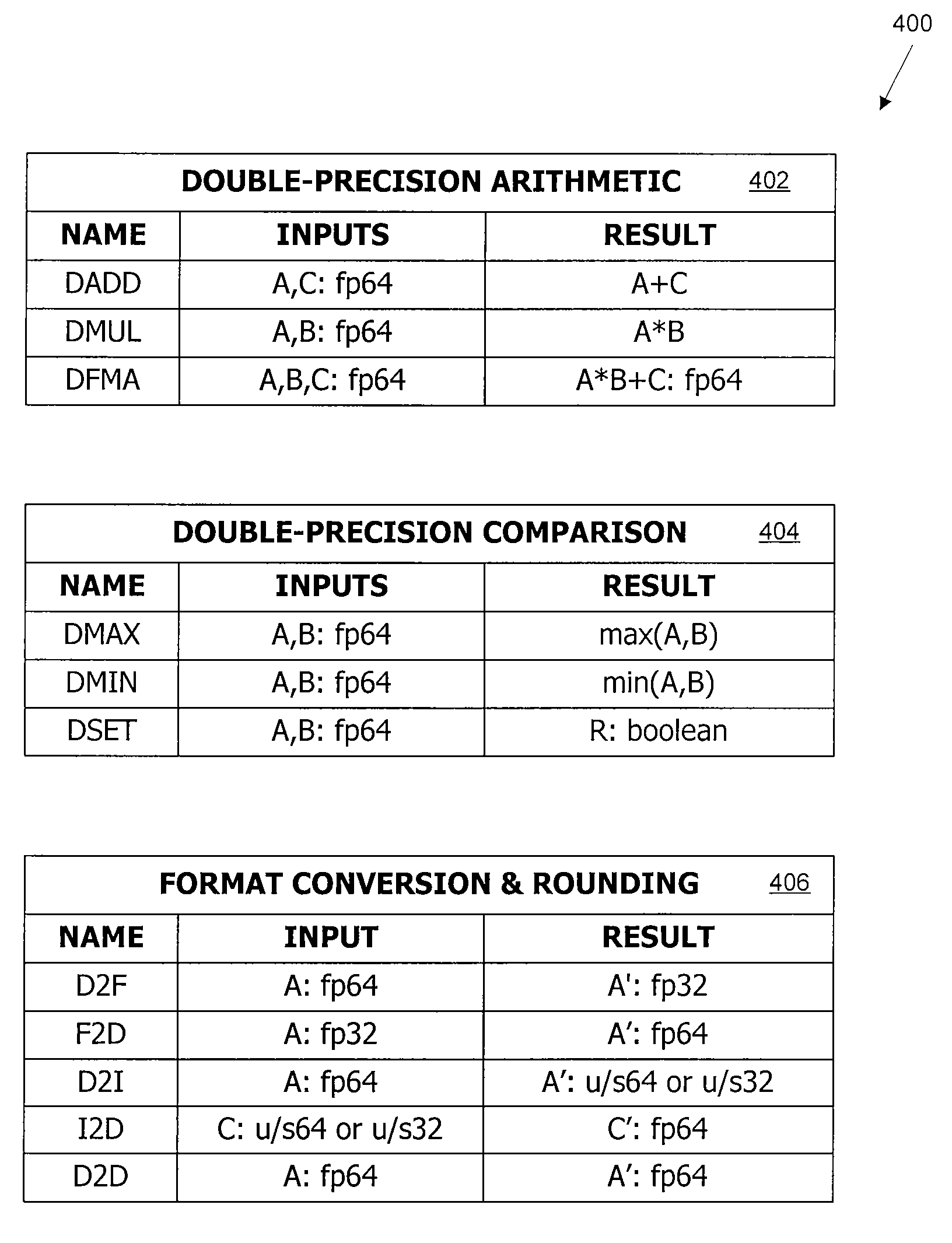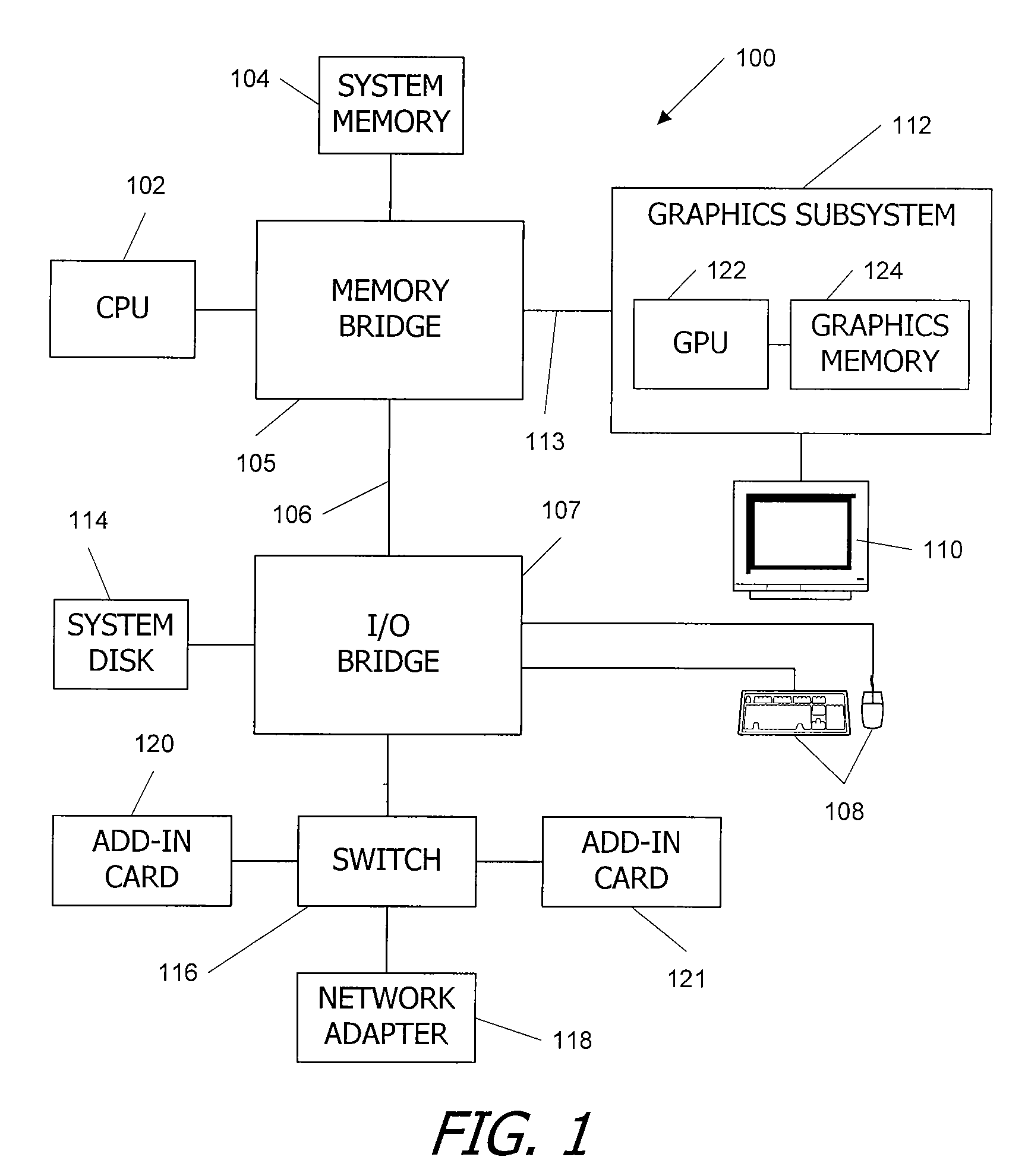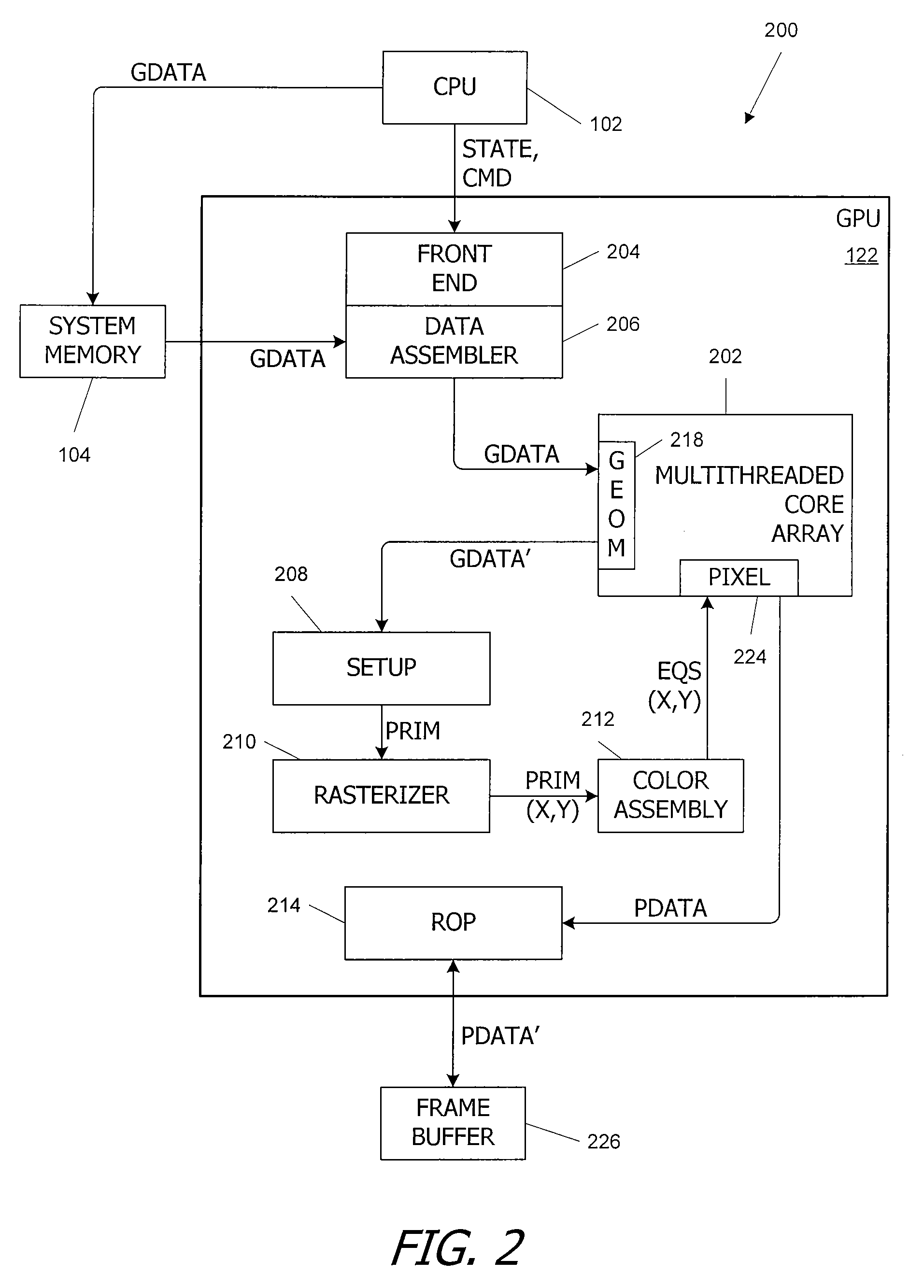Fused multiply-add functional unit
a functional unit and multiplying technology, applied in the field of double-precision fused multiplying functional units of graphics processors, can solve the problems of significantly reducing the double-precision throughput of graphics processors, slowing throughput, and reducing the effect of adding support for double-precision on the chip area
- Summary
- Abstract
- Description
- Claims
- Application Information
AI Technical Summary
Benefits of technology
Problems solved by technology
Method used
Image
Examples
Embodiment Construction
[0028]Embodiments of the present invention provide graphics processors that include dedicated double-precision (e.g., 64-bit) functional units. In one embodiment, a double-precision functional unit is capable of performing addition, multiplication and fused-multiply add operations, as well as double-precision comparisons and format conversions to and from double-precision formats.
I. System Overview
A. Computer System Overview
[0029]FIG. 1 is a block diagram of a computer system 100 according to an embodiment of the present invention. Computer system 100 includes a central processing unit (CPU) 102 and a system memory 104 communicating via a bus path that includes a memory bridge 105. Memory bridge 105, which may be, e.g., a conventional Northbridge chip, is connected via a bus or other communication path 106 (e.g., a HyperTransport link) to an I / O (input / output) bridge 107. I / O bridge 107, which may be, e.g., a conventional Southbridge chip, receives user input from one or more user i...
PUM
 Login to View More
Login to View More Abstract
Description
Claims
Application Information
 Login to View More
Login to View More - R&D
- Intellectual Property
- Life Sciences
- Materials
- Tech Scout
- Unparalleled Data Quality
- Higher Quality Content
- 60% Fewer Hallucinations
Browse by: Latest US Patents, China's latest patents, Technical Efficacy Thesaurus, Application Domain, Technology Topic, Popular Technical Reports.
© 2025 PatSnap. All rights reserved.Legal|Privacy policy|Modern Slavery Act Transparency Statement|Sitemap|About US| Contact US: help@patsnap.com



